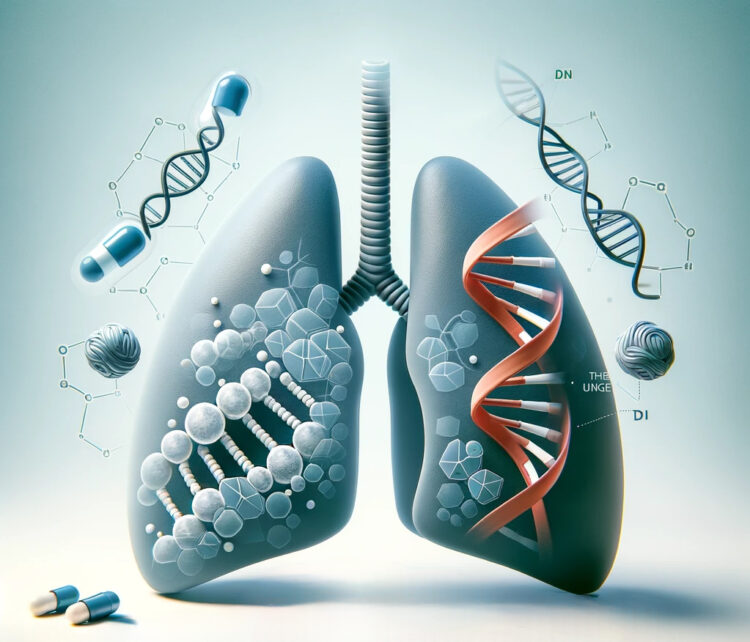Lung cancer is one of the most common types of cancer worldwide, and the treatment process for patients with non-small cell lung cancer (NSCLC) carrying EGFR mutations can be particularly complex. This disease is characterized by uncontrolled growth and proliferation of cells in the lungs. The EGFR mutation is considered a significant factor in the treatment of this disease, and patients with this mutation are usually treated with EGFR-targeted therapies.
Recently, a new ray of hope has emerged for the treatment of patients with EGFR-mutant NSCLC. The Phase II clinical trial, HERTHENA-Lung01, offers a new treatment option for patients who have previously undergone EGFR-targeted therapy and platinum-based chemotherapy. This study evaluates the effectiveness and safety of patritumab deruxtecan, a HER3-targeted antibody-drug conjugate.
In the HERTHENA-Lung01 study, 277 patients who had previously received at least one EGFR-targeted therapy and platinum-based chemotherapy participated. These patients were treated with a fixed dose of 5.6 mg/kg of patritumab deruxtecan. The primary endpoint, objective response rate (ORR), and secondary endpoints were assessed in a group of 226 patients.
At a median follow-up of 18.9 months, the ORR was determined to be 29.8%, with a median response duration of 6.4 months. The median progression-free survival was 5.5 months, and the median overall survival was 11.9 months. Patients with CNS metastases (n=115) achieved similar outcomes to those without.
An analysis of tumor tissue from 197 patients revealed no significant differences in ORR based on HER3 expression or the presence or absence of mutations associated with resistance to EGFR inhibitors. In 2 of the 7 patients without detectable HER3 expression, confirmed partial responses were observed.
Grade 3 or higher treatment-related adverse events (TRAEs) were observed in 64.9% of patients, with at least one grade 4 TRAE occurring in 28.9% of patients.
These findings demonstrate the tolerability and clinical efficacy of patritumab deruxtecan in heavily treated patients with EGFR-mutant NSCLC. Comparative studies may be required to confirm the role of this agent.
The results of this study highlight the importance of developing new treatment options for patients with advanced-stage lung cancer. EGFR-mutant NSCLC, especially in advanced stages, is characterized by limited treatment options and generally poor survival outcomes, making such innovative treatments a significant beacon of hope.
For patients and physicians, this development is important in re-evaluating traditional approaches to lung cancer treatment. New treatment options can improve patients’ quality of life and offer a longer survival possibility. The outcomes of this study are considered a significant step in lung cancer treatment and may guide future research.
Reference:
Helena A. Yu, et al., “HERTHENA-Lung01, a Phase II Trial of Patritumab Deruxtecan (HER3-DXd) in Epidermal Growth Factor Receptor-Mutated Non-Small-Cell Lung Cancer After Epidermal Growth Factor Receptor Tyrosine Kinase Inhibitor Therapy and Platinum-Based Chemotherapy.” Journal of Clinical Oncology: official journal of the American Society of Clinical Oncology: JCO2301476.






